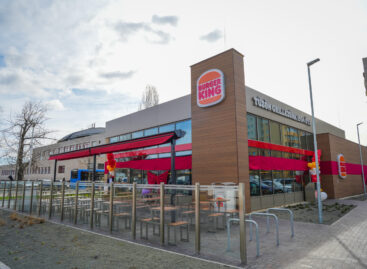Climate change is also a challenge for Hungarian breweries
Global climate change also presents challenges to breweries, since raw materials such as barley and hops are sensitive to weather conditions. Hungarian breweries are particularly sensitively affected, as their options for purchasing raw materials are limited due to their smaller size and they are less able to adapt to rapidly changing market conditions compared to larger producers. In the HelloVidék article, Zoltán Magyar, the managing director of UGAR Brewery, and Tamás Szilágyi, the founder/CEO of Mad Scientist, commented on the situation.
 Zoltán Magyar emphasized that small-scale breweries are particularly vulnerable to raw material market fluctuations. In case of drought, the quality of barley deteriorates, which directly affects the cost and quality of the product. The lack of local hop production further aggravates the situation, so they have to source raw materials from abroad, which means higher costs and logistical challenges. In addition, brewing is a process that requires a lot of energy and water, the costs of which have increased significantly in the recent period.
Zoltán Magyar emphasized that small-scale breweries are particularly vulnerable to raw material market fluctuations. In case of drought, the quality of barley deteriorates, which directly affects the cost and quality of the product. The lack of local hop production further aggravates the situation, so they have to source raw materials from abroad, which means higher costs and logistical challenges. In addition, brewing is a process that requires a lot of energy and water, the costs of which have increased significantly in the recent period.
Tamás Szilágyi added that the increase in energy prices particularly sensitively affects kitchens, which are large energy consumers. In response, Mad Scientist is planning a solar investment to reduce their energy dependence. In addition, they use green solutions in terms of packaging: they use aluminum boxes and paperboard, avoiding the use of plastic and shrink wrap.
The example of New Belgium Brewing can also be an inspiration for Hungarian breweries. The American brewer has already succeeded in making its flagship product, Fat Tire, America’s first certified carbon-neutral beer, and is taking serious steps to achieve the 2030 climate goals. With their “Torched Earth Ale” beer, they draw attention to the serious consequences of climate change in a dramatic way.
Related news
40 secure jobs, sustainable solutions – new BURGER KING® in Csepel
🎧 Hallgasd a cikket: Lejátszás Szünet Folytatás Leállítás Nyelv: Auto…
Read more >Adaptation and knowledge have become the key issues of climate change
🎧 Hallgasd a cikket: Lejátszás Szünet Folytatás Leállítás Nyelv: Auto…
Read more >Carrefour and Coca-Cola are focusing on refillable glass bottles
🎧 Hallgasd a cikket: Lejátszás Szünet Folytatás Leállítás Nyelv: Auto…
Read more >Related news
(HU) Átadták a SIRHA Budapest 2026 Innovációs Termékverseny díjait
🎧 Hallgasd a cikket: Lejátszás Szünet Folytatás Leállítás Nyelv: Auto…
Read more >How does the forint exchange rate affect consumer prices?
🎧 Hallgasd a cikket: Lejátszás Szünet Folytatás Leállítás Nyelv: Auto…
Read more >HELL CITY has arrived, led by Michele Morrone
🎧 Hallgasd a cikket: Lejátszás Szünet Folytatás Leállítás Nyelv: Auto…
Read more >








